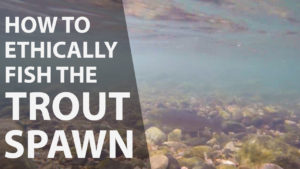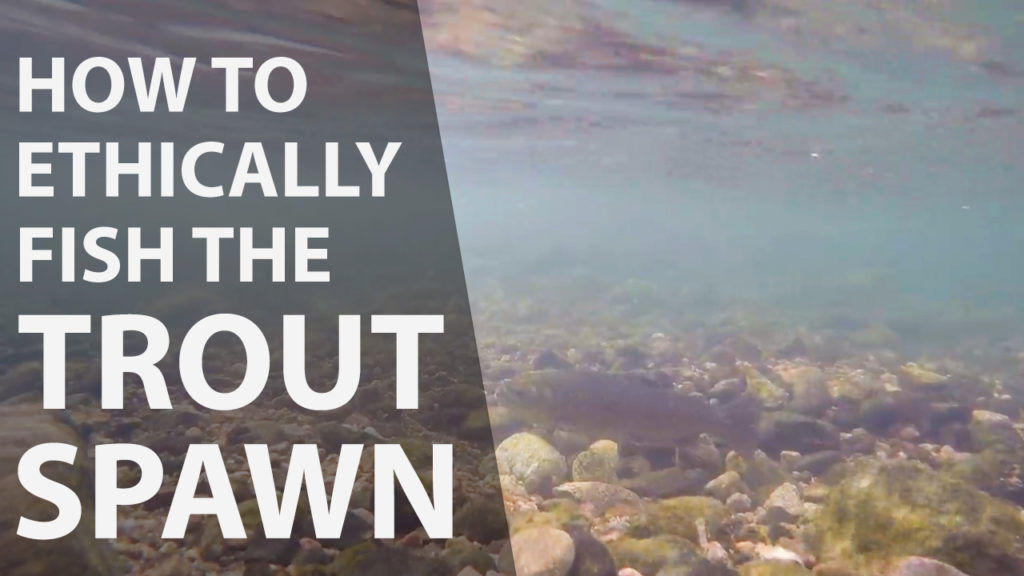The following content is part of our Fly of the Month Club. This article is written by Peter Stitcher from Ascent Fly Fishing.
As a member of the Wambolt and Associates Fly of the Month Club, the importance of investing for the future is assuredly already a well established value in your life. You work hard, you diversify your assets, and you balance the potential risks and rewards with an eye to the future. Regardless of our previous vocations, we share common goals in retirement; a secure future and time to enjoy the bounty brought about by forethought and investment. It is with a similar eye toward the future that the fly fisher will ensure vibrant and healthy fisheries to be enjoyed for years to come.
Each spring as the snows begin to subside and the water temperatures creep up to 44°- 48°F, the Rainbow and Cutthroat trout prepare to spawn. Caution goes out the window as hormones drive these fish to gather in pools throughout the river before heading up into the shallows to spawn. For the fly fisher who has eagerly been awaiting warmer weather and the chance to fish flies larger than a size 24 midge, this season provides some amazing opportunities but also requires restraint. The uneducated or short-sighted angler can do significant harm to the river and the future of the fishery if they are not careful. While there is hot fishing action to be had during and after the spawn, we need to be able to know which trout are fair game, which are off limits, how to identify a spawning redd, and approach the spring spawning season by actively investing in our fly fishing futures.


Mind the Redd
A Redd is the spawning bed in which trout lay their eggs, and from which our hopes of a healthy, vibrant fishery are born. After staging in the deep, protected pools of the river, the trout that are ready to spawn move up into the shallow, fast-flowing riffles in roughly 4 – 18 inches of water. In these gravel-strewn, well-oxygenated reaches, the trout will actively fan the gravel with their tails to clear it of algae and silt, creating a distinctive bright patch on the bottom of the river. Like a flashing caution light, these bright patches are your sign to stand clear and are off limits to wading. A single mindless boot tramped through the redd can crush hundreds of trout still in the egg. When wading in the spring, watch out for these brightly marked redds and head to deeper waters if you must wade or cross the river.
The Shallows Are Off Limits
As tantalizing as the trout may appear as they dart and chase each other through the shallow riffles, these fish are there to spawn and are off limits to the angler. Mature trout feel most secure with at least 12” of water over their heads, and only move into the more dangerous shallows to spawn. Pursuing these fish is like buying into a ponzi scheme, with the immediate returns looking good, but the long term effect bringing ruin for all. So, if you see fish in the shallows, please leave them to spawn and focus your attention instead on the pools of the river.
The Pools are Fair Game
For every fish you see working the redds in the shallows of the river, there are typically 5 – 10 times that many holding in the pools that separate the riffles. The fish in the deep pools are either still preparing to spawn, have recently finished their courtship, or will be comprised of brown and brook trout feeding on eggs as they roll down the river. These fish are fair game, and their pursuit will not harm the fishery.
So, with that encouragement, break out your fly rods and head to the river to enjoy some amazing action on the fly this Spring. If you mind your step and fish with an eye to the future, these rivers will continue to produce numerous healthy fish that will welcome both you and your flies for years to come! To learn more about this topic and to see some examples of active trout redds, check out our YouTube video titled “How to Ethically Fish During the Trout Spawn”.



